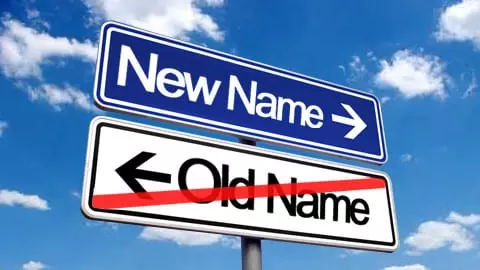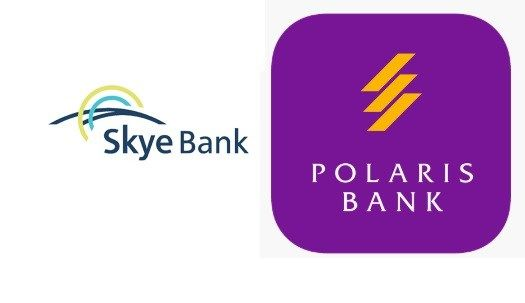Facebook on Thursday, October 28th 2021 announced that it has changed its company name to Meta. The rebranding came as a surprise to regular consumers of the app, but Mark Zuckerberg, the founder of Facebook, claimed that the renaming was to signal that the company was branching out and was linked to more than one product. He added that Meta was a better representation of what the company is working toward.
This isn’t the first time a well-known company will be changing its name, as over the years, companies keep rebranding – rebranding is part of what makes a company stay relevant and appealing to the public.
Brand names give businesses the opportunity to put a meaning behind their name with completely positive connotations. Brand name is often the first element of your brand that customers will encounter. It’s vital that the name is distinctive, authentic, memorable, and enduring, so it resonates with your target audience. It should stick in their minds, build and maintain trust with your consumers, and remain relevant as your company evolves. In other words, a strong brand name is vital to establishing a strong brand reputation.
Why do companies change their names?

Usually, companies don’t just change their names as it requires a lot of publicity expenses in relaunching a new brand name. It may even confuse the people who remember the old name. However, certain factors inadvertently contribute to companies rebranding with a change of name. These are (not limited to these):
Merger & Acquisition

When a new owner takes over an existing company, many times, they come with a brand new name. This was the story of telecom company Airtel which saw 6 acquisitions and 5 change of names which included Econet, Vodacom, V Mobile, Celtel, and Zain.
When Access Bank in Nigeria acquired Diamond bank, the latter had to adopt the name of its new owner. During the bank mergers in Nigeria, several banks merged to form a new bank, rebranding with a new name. Polaris Bank, formerly Skye Bank, comprises Prudent Bank, EIB International Bank, Bond Bank, Reliance Bank, and Co-operative Bank. Union Bank took under its wings Broad Bank and Universal Trust Bank. The other groups include, Wema Bank (Wema Bank, Lead Bank and National Bank), etc.
When electricity company National Electric Power Authority (NEPA) was privatized in 2004, the name was changed to Power Holding Company of Nigeria (PHCN), to reflect its private state.
A Shift in Identity & Operations
This is usually common to companies who feel their brand name is different from the vision of the company or the kind of services they render. When Google announced that its new name would be Alphabet in 2015, they explained that as a technology conglomerate, the new name would unite its widening interests and product lines. Apart from popular Google’s core search business, there are a number of companies that make up Alphabet, spanning a diverse array of industries, including robotics, life sciences, healthcare, and anti-aging.
When the iPhones were launched in 2007, the producing company changed its name from Apple Computers to Apple. This was done to reflect what it was producing, which weren’t limited to just computers but mobile phones, iPads, etc.
This shift in identity propels companies to rebrand and stick to a name with envelopes all they do. Rebranding in this aspect allows a company to diversify its product offerings.
To Reflect Cultural change in Consumer Behaviour
For companies whose services are directly linked to consumer behavior, a change of name is usually influenced by how their customers perceive them. When Kentucky Fried Chicken changed its name to KFC, their reason was to eliminate the ‘fried’ in the name, as customers looked out for healthier choices. KFC showed they are a company concerned about the health of their customers and would serve a diet good for the health of their customers.
To Fit Into Local Market
A successful strategy for companies to grow in a particular country or region is called brand localization. This is a strategy used in which the company adopts its brand to the local market. Brands often have to change names, as it would not fit in with the local market. This is because there are often existing trademarks in place, or names having another meaning in specific countries. Brands may use the same logos, colors, and sometimes the same slogan, but different names.
An example is KFC which is synonymous across the world, but in Quebec, Canada, it is known as PFK that stands for Poulet Frit Kentucky. The French-speaking region in Canada has strict naming laws that ensure brands have french initials.
Another company is the popular chips company LAYS. Want to grab a packet of Lays in Egypt, you’d ask for a bag of ‘Chipsy.’ It also goes by Walkers in the UK and Smith’s in Australia. The Logo remains similar throughout the world.
Reputation Management
A product is built by the company while the brand is built by the consumers. It’s the power of communication which builds a brand. When companies fail in effective communication of their brand, their image gets a negative review in the sight of the public, which can lead to a downfall of such a company. If a company has been through a period of poor management during which customer relationships and brand reputation have suffered, there are often strong benefits to a name change in rebooting the connection between a company, its clients, and its suppliers.
Facebook undertook its name change for a number of reasons, but chief among them is that the brand is irrevocably associated with scandals, negative externalities, and Mark Zuckerberg fallout with the Government. Even before the most recent outage and whistle-blowing scandal, Facebook was already the least-trusted tech company by a long shot with its breach in consumer data-privacy scandal.
Cadabra had to change their brand name to Amazon as the name was often misheard as Cadaver, which meant a corpse. This is where the Public Relations Department of a company comes in – they make sure the company’s reputation in the eyes of the public is intact and well managed.
Popular Companies that have changed their names
Airtel Nigeria •Former name: Zain •Year changed: 2010
Snapchat •Former name: Picaboo •Year changed: 2011
Netflix •Former name: Qwikster •Year changed: 2011
Intel Security •Former name: McAfee •Year changed: 2014
Tiger Branded Consumer Goods Plc •Former name: Dangote Flour Plc •Year changed: 2015
Alphabet •Former name: Google •Year changed: 2015
Guaranty Trust Holdings Company ( GTCO ) •Former name: Guaranty Trust Bank Plc ( GTB) •Year changed: 2021
TotalEnergies •Former name: Total •Year changed: 2021
What Companies Should Do When Changing Their Names?
“The success of a name change depends upon companies educating existing customers about the rationale for the name change in a way that is compelling,” said Jill Avery, a senior lecturer at Harvard Business School who focuses on brand management. “If the name change appears illegitimate, inauthentic or done for the wrong reasons, firms risk injuring their relationships with consumers.”